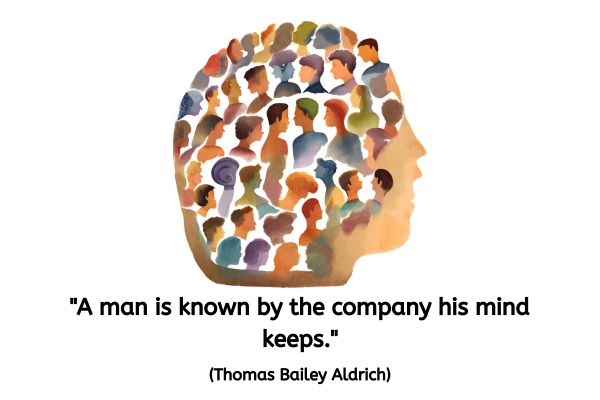Breaking Free from Conventional Wisdom: Designing Your Coaching Business on Your Terms

Today’s quote is:
“The fate of the worm refutes the pretended ethical teaching of the proverb which assumes to illustrate the advantage of early rising and does so by showing how extremely dangerous it is.” (Thomas Bailey Aldrich)
Whether you identify as a night owl or an early bird, this quote challenges us to reconsider the norms and expectations imposed on us. As coaches, especially those with a coaching business, it’s an invitation to break free from the preconceived notions of how a business should run and explore what truly works for you.
Questioning Conventional Wisdom:
Many coaches, operating as sole practitioners or leading small teams, often find themselves navigating the world of business based on inherited “rules” and societal “shoulds.” The question that arises is, do these norms align with your unique vision and preferences for your coaching business? The quote encourages a pause for reflection, urging coaches to question whether they are willingly conforming to business expectations that may not resonate with their personal style.
Crafting Your Own Narrative:
Imagine the freedom of designing your coaching business on your terms. The quote prompts coaches to consider the possibility of breaking away from conventional structures and creating a business model that suits their lifestyle and preferences. It challenges the assumption that there is a one-size-fits-all approach to running a coaching practice. What if you had the creative liberty to shape your work in a way that not only serves your clients but also brings joy and fulfillment to your own professional journey?
For me, on more than one occasion, I have found myself stressing over how to fit new commitments into my day – until realising that I could schedule coaching calls differently. Just because others scheduled them one way didn’t mean that I had to, or on another occasion just because I had been scheduling calls that way didn’t mean I couldn’t change that structure! (I know, it seems so obvious once you get that new thought lol) I suspect I’m not the only one who forgets that we get to make this up for ourselves, so that it works for you and your life!
The central question posed is an invitation to coaches: “If you got to make up how your coaching business ran, what would you do?”
- How would you structure your day, week, or month?
- How would you love to invite people to experience your coaching?
- What extra support would you get? …..
Explore your own unique preferences and create a business environment that aligns with your personal and professional values.
Conclusion:
As coaches, it’s essential to remember that the path to a successful coaching business doesn’t have to conform to societal expectations. The Aldrich quote serves as a reminder that sometimes the conventional wisdom may not be as wise as it seems. So, take a moment to envision your coaching business on your terms. Embrace the freedom to create a structure that resonates with you, and watch as your coaching practice flourishes in authenticity and fulfillment. After all, rewriting the rules is often the first step to success!
About Jen Waller

Jen Waller is on a mission to support, nurture and encourage coaching skills and talents from non-coach to coach and beyond.
As an experienced coach and trainer Jen is happy to utilise all skills at her disposal to assist clients from getting out of their own way and making a difference in the world with their coaching. Find out more about the support Jen offers here.
